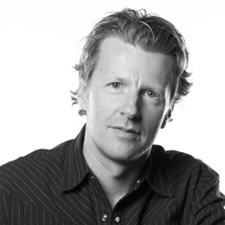
Fred Dust is described as an “experience designer” or a cultural anthropologist. In his work as a partner for San Francisco-based IDEO, Dust looks for ways to make a particular environment – a hotel room or an airport security checkpoint, for example – not only more effective, but deeply memorable for the person experiencing it.
Some of Dust’s recent projects include designing a service model for the Mayo Clinic and Kaiser Permanente, as well as redesigning the donation experience for the American Red Cross and helping the Transportation Security Administration improve airport security. He also consulted with cartoonist Scott Adams on creating “Dilbert’s Ultimate Cubicle,” an interactive makeover of the featureless office cube.
Dust will be speaking at the University of Notre Dame on Friday (Feb. 12) at 10:40 a.m., in the Jordan Auditorium of the Mendoza College of Business. His talk is part of the Mendoza College’s Ten Years Hence Speaker Series, an annual spring series that explores ideas and trends likely to affect business and society over the next decade.
The topic for 2010 is the future of capitalism, which experts from industries ranging from money management, design, retail and media, will examine from a variety of perspectives. The talks are free and open to the public.
The IDEO approach is called “design thinking” and presents not just a way to change a particular space, but a way to think about business challenges. The traditional approach to problem solving usually involves analyzing an array of options and moving forward with what seems to be the best one.
With design thinking, the designers start moving forward as part of the thinking process, gathering collective ideas from people of different backgrounds and creating solutions on the go. The process is more holistic, fluid and flexible, and according to IDEO, results in a more effective, human-centered outcome than if one person approached the problem. Further, IDEO posits that design thinking can tackle complex socio-economic problems such as health care and education through its collaborative approach.
IDEO projects include dozens of high-level designs for a wide range of organizations, such as ethical consumerism concepts for Oxfam GB, a CD player for Muji Global and N-Gage gaming platform for Nokia.
More information about the Ten Years Hence Lecture Series, including the full series schedule, is available here.
Contact: Jean Meade, Mendoza College of Business, 574-631-3277, Jean.Meade@nd.edu